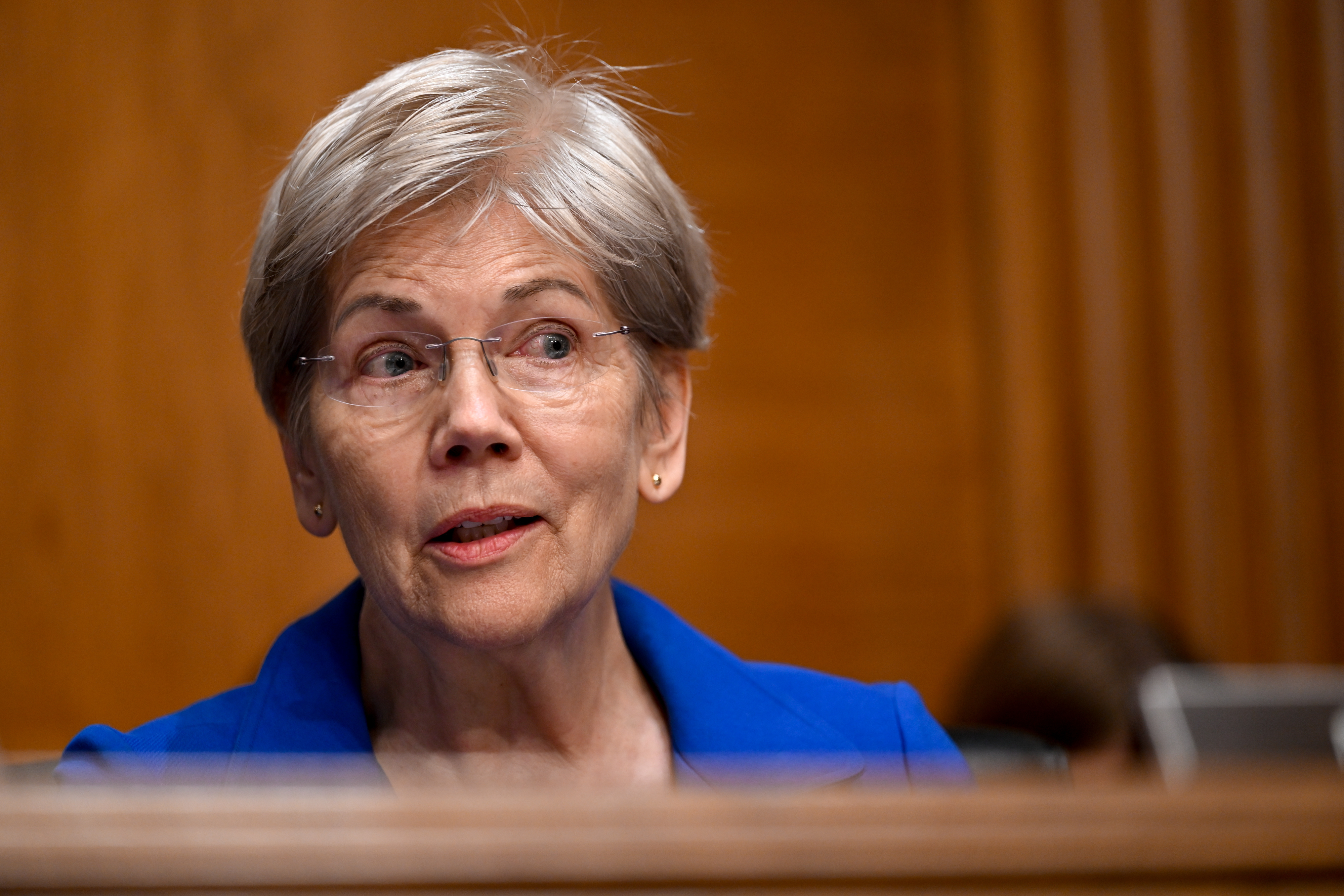
One of the most lucrative tax breaks corporate America won in Donald Trump’s signature economic legislation — worth an estimated $67 billion this year — is hitting a roadblock in a minimum tax Congress set three years ago under Democratic President Joe Biden.
Trump’s recently enacted tax law sweetened a break for corporate research and development investments, a provision
Some of Washington’s most powerful interest groups and GOP lawmakers are now pressing for a workaround, either through new legislation or a reinterpretation of existing law by Trump’s Treasury Department.
Companies can now deduct the full cost of domestic R&D in one year, rather than spreading out the deduction over five years. Even better for businesses, they can also fully deduct delayed breaks for R&D investments going back to 2022, a boon estimated to be worth $67 billion in upfront tax savings,
But companies crunching the numbers are finding the glut of previously delayed R&D deductions is so big that claiming them all at once this year would trigger the corporate alternative minimum tax passed under Biden or separate international tax provisions enacted during Trump’s first term that are aimed at preventing firms from moving profits offshore.
It isn’t clear how many companies will hit the 15% minimum tax limit this year as a result, but Salesforce Inc. has already warned investors it expects to do so. Rohit Kumar, leader of the PricewaterhouseCoopers LLP tax policy services group, said the issue has been bubbling up with dozens of clients across sectors.
Business interest groups argue the limitation weakens one of the law’s most pro-growth tax provisions by undermining incentives to invest in research inside the U.S.
“Companies in general invest less in R&D when they can’t expense their R&D costs,” said Charles Crain, managing vice president of policy for the National Association of Manufacturers.
The “stack-up” of R&D deductions from the previous three years is causing the issue, Crain said.
Without a change, companies may be stuck continuing to spread out deductions for their 2022 through 2024 research and development costs over five years. While companies would still get the same tax savings, it would take longer.
Crain said deductions for annual research and development spending aren’t expected to trigger the minimum tax after this year.
Not everyone agrees that companies are missing out on a benefit Congress intended for them. Democratic Senator Elizabeth Warren, who sits on the tax-writing Finance Committee, said the minimum tax is working as designed to prevent corporations from shirking taxes.
“They make so much money and pay so little in taxes that with these huge additional tax giveaways that the Republicans have given them, they might actually have to pay an alternative minimum tax,” the Massachusetts Democrat said. “Yeah, that was exactly how it was supposed to work.”
Impact
Salesforce said in a quarterly security filing that the company anticipates being hit by the corporate alternative minimum tax because of the tax breaks included in the new law. Other companies, including Broadcom Inc., Airbnb Inc. and Applied Materials Inc., said in filings the new tax breaks could prevent them from claiming hundreds of millions of dollars in tax credits related to past payment of the corporate alternative minimum tax.
None of the four companies responded to requests for comment on how the tax snag would impact their research and development spending plans.
The manufacturers’ association pressed Republicans to address the issue as the legislation was making its way through Congress but was unsuccessful, Crain said.
Along with the National Association of Manufacturers, the U.S. Chamber of Commerce, another heavy-hitting Washington business lobby, is pushing for a way around the limitation, said Watson McLeish, the chamber’s senior vice president of tax policy.
“It will ultimately end up diluting the potential impact,” McLeish said. “It’s counterintuitive and counterproductive.”
Next steps
Congressional Republicans and business lobbyists are turning first to the Trump administration to use regulatory authority as a way of bypassing the limits.
Representative Nicole Malliotakis, a New York Republican on the tax-writing Ways and Means Committee, said GOP lawmakers are “working with Treasury to get some clarity.” The department didn’t respond to requests for comment.
Malliotakis said if Congress considers another tax package soon, she also would try to add a provision to bypass the limitation.
Experts differed on whether the Treasury Department has the authority to give companies what they want through regulatory changes.
PwC’s Kumar said the department likely does at least as it applies to the corporate alternative minimum tax. Removing limits imposed by international tax provisions may be more difficult because Congress granted Treasury less leeway in that statute, Kumar said.
Democrats left Treasury “wide discretion” to flesh out the details when Congress established the corporate alternative minimum tax in their party-line 2022 climate and tax law. That would give Treasury the wiggle room to avoid limiting deductions for prior-year research and development costs, Kumar said.
Timothy Powell, a national tax partner at Ernst & Young LLP, wasn’t so sure. Congress left the department an unusual amount of leeway on implementing the 15% minimum tax. But Congress also specifically directed Treasury to prevent “duplications and omissions,” Powell said.
If companies used research and development investments to lower their tax exposure in prior years, excluding it from the corporate minimum tax calculation now could be considered a duplication, he said.
“That’s the challenge. I don’t want to say they can’t, I think it’s just a little bit of a hurdle they have to think through,” Powell said.
#Trumps #corporate #tax #break #worth #67B #hits #snag